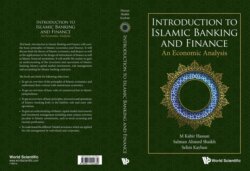Читать книгу Introduction to Islamic Banking and Finance - M Kabir Hassan - Страница 12
На сайте Литреса книга снята с продажи.
1.1.2Filter of Halal (permissible) and Haram (impermissible) in productive enterprise
ОглавлениеThis section discusses the Islamic guidelines for the consumption behaviour of individuals. These teachings are also relevant for firms to ensure that their product offerings, marketing strategies and sales promotions are consistent with Islamic teachings. Islamic teachings make a distinction between allowable (Halal) and non-allowable (Haram) goods and services. The Qur’an says . . . Eat of that which is lawful and good on the earth . . .13 Therefore, the consumer would only make a choice among Halal consumption goods and Halal investment products. For instance, Islam forbids intoxicants like alcohol or drugs.14 In financial services, Islam forbids Riba (interest)15 and Maysir (gambling),16 for instance.
Islamic juristic experts have classified needs in a hierarchical structure. Al-Raysuni states that Imam Al-Shatibi has classified needs into three categories, i.e. (i) Necessities (Dharuriyah), (ii) Conveniences (Hajiyah), and (iii) Refinements (Tahsiniyah).17 In the hierarchical structure of needs espoused by Imam Al-Shatibi, necessities include such things and activities that are vital to safeguard (i) Faith (Iman), (ii) Life (Nafs), (iii) Wealth (Mal), (iv) Intellect (Aqal), and (v) Progeny (Nasl).18
